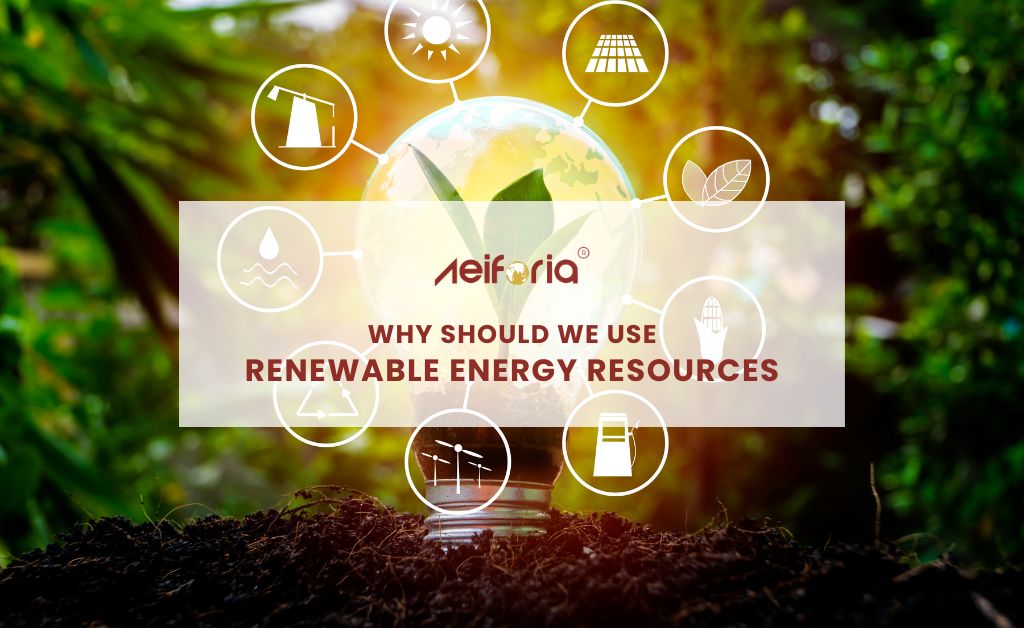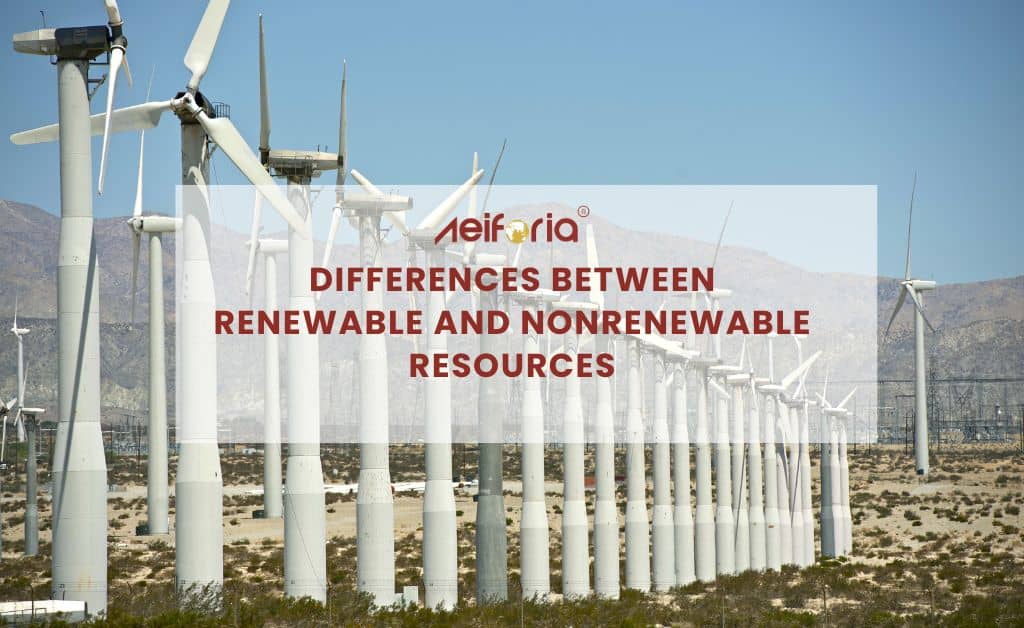
Why Should We Use Renewable Energy Resources
The quest for sustainable and eco-friendly energy sources has become a paramount concern today. Renewable energy resources have emerged as a promising solution to the ongoing environmental crisis. This article will explore why we should prioritize using renewable energy resources over conventional fossil fuels. Join us on this green journey to explore the ecological, economic, and social advantages of embracing renewable energy.
Introduction
Most renewable energy sources, such as hydro, wind, solar, and geothermal, are increasingly recognized as the future of energy production. This shift is driven by a profound need to address climate change, reduce pollution, and create a more sustainable world. Here, we'll discuss why renewable energy deserves our immediate attention.
Environmental Benefits of Renewable Energy
The Fight Against Climate Change
One of the most pressing global issues of our time is climate change. Most of the energy we use today comes from sources like coal and oil. Still, these sources are bad for the environment because they release gases that cause global warming. Global warming is a severe problem that can cause all sorts of damage to our planet. However, there's good news! There are other ways to produce energy that don't create these harmful gases. These are called "renewable" energy sources, and they're becoming increasingly important as we try to protect the environment and stop global warming.
Reduced Air and Water Pollution
The burning of fossil fuels not only contributes to climate change but releases pollutants that harm the air we breathe and the water we drink. In contrast, renewable energy sources are clean and produce minimal pollution, safeguarding the environment and public health.
Preservation of Natural Resources
It is important to note that fossil fuels are not infinite resources, and their extraction can cause significant damage to ecosystems and landscapes. Transitioning to renewable energy helps preserve our precious natural resources and minimizes the negative impact on our environment.
Economic Advantages of Renewable Energy
Job Creation
The renewable energy industry has established itself as a vital source of employment opportunities. As the industry grows, so does the demand for skilled workers. This translates into job opportunities, local economic growth, and a more stable employment landscape.
Energy Cost Stability
Renewable energy sources are inherently stable in terms of cost. Unlike fossil fuels, whose prices fluctuate due to geopolitical factors, renewable energy's cost remains steady, offering predictability and long-term savings for consumers and businesses.
Technological Advancements
Investments in renewable energy have led to significant technological advancements. As innovation continues, the efficiency and accessibility of renewable energy sources are continuously improving, making them more viable and attractive options.
Social Impacts of Renewable Energy
Improved Public Health
Renewable energy sources produce no harmful pollutants, producing cleaner air and water. This, in turn, leads to improved public health by reducing respiratory and cardiovascular diseases caused by pollution.
Energy Independence
By utilizing local and renewable energy sources, communities and nations can become less dependent on foreign energy supplies. This enhances energy security and reduces vulnerabilities to energy crises.
Community Empowerment
Renewable energy projects can empower local communities by providing them economic opportunities and a voice in decision-making. This community engagement strengthens social bonds and fosters a sense of ownership.
Challenges and Misconceptions
Intermittency Concerns
Critics often point to the intermittent nature of renewable energy sources like solar and wind. However, energy storage technologies and grid management advancements address these concerns, making renewables more reliable.
Initial Investment
Transitioning to renewable energy may require significant initial investments. Nonetheless, the long-term benefits of energy savings, job creation, and environmental preservation outweigh these upfront costs.
Aesthetic Concerns
Some people need to be more confident about the visual impact of renewable energy installations. Yet, renewable energy solutions are becoming more aesthetically pleasing and seamlessly integrated into landscapes as technology evolves.
Government Support and Initiatives
Governments worldwide recognize the importance of renewable energy and are implementing policies, incentives, and subsidies to support its growth. These initiatives are crucial in accelerating the transition to cleaner energy sources.
Future Prospects of Renewable Energy
The future of renewable energy is promising. With continued technological advancements, increasing public awareness, and policy support, we can expect renewables to become the dominant source of power in the coming decades, leading to a cleaner and more sustainable planet.
Conclusion
In conclusion, the utilization of renewable energy resources offers a multitude of advantages. It significantly contributes to environmental preservation, provides economic benefits, and positively impacts society. While there are challenges to overcome, the global shift towards renewable energy is undeniable and necessary to secure a greener future for future generations.
Frequently Asked Questions (FAQs)
How effective is renewable energy?
Renewable energy is highly effective in reducing greenhouse gas emissions, promoting energy independence, and creating economic opportunities.
Are renewable energy systems expensive?
Investing in renewable energy systems can require a substantial initial cost. Still, the long-term savings, economic benefits, and environmental preservation they offer make them cost-effective in the long run.
Which renewable energy source is the best?
The best renewable energy source depends on the location and specific energy needs. Still, solar and wind power are among the most commonly used and versatile options.
How can we promote renewable energy?
To promote renewable energy, we can support government policies, invest in renewable technologies, use energy-efficient products, and advocate for sustainable energy practices in our communities.
What does the future hold for renewable energy?
The future of renewable energy looks promising, and its prospects are bright, with continued advancements in technology and increasing awareness. It is expected to become the dominant energy source shortly, ensuring a cleaner and more sustainable planet.
Also Read: What are 5 Differences Between Renewable and Nonrenewable Resources?






